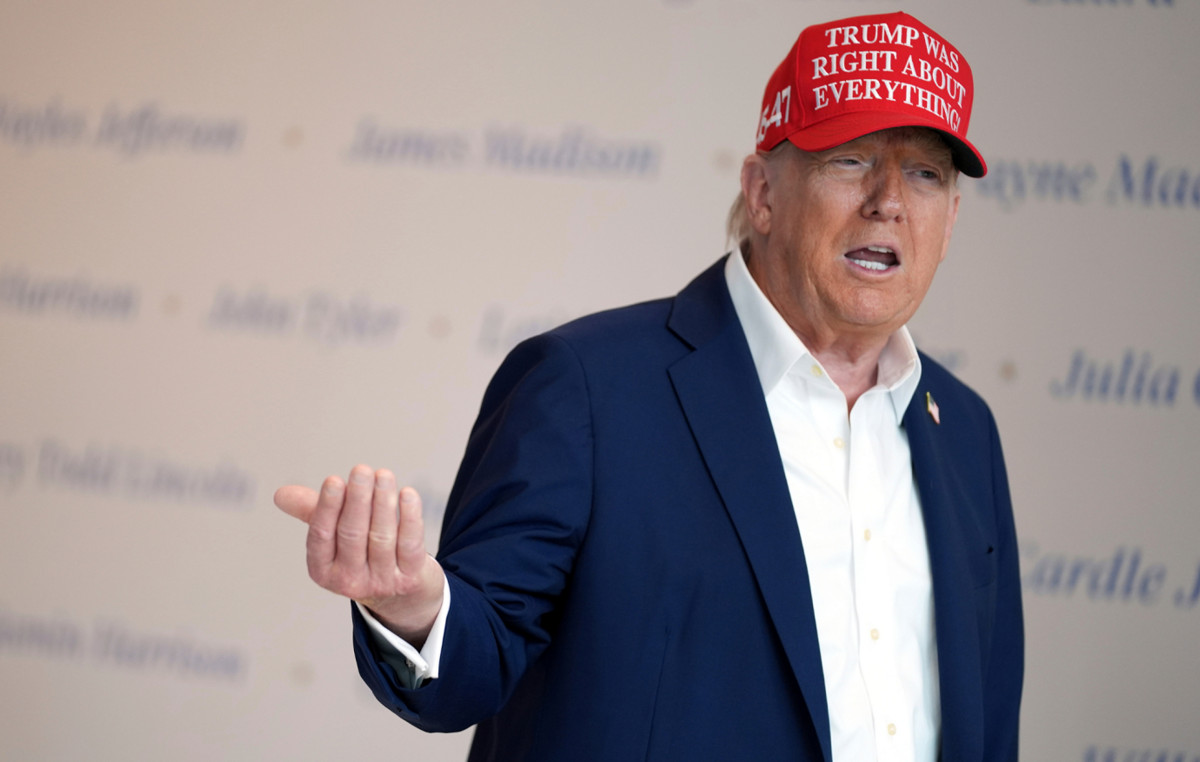President Joe Biden signed a bill this Wednesday (24) that could lead to a nationwide ban on TikTok, increasing a huge threat to the company's operations in the United States.
Congress passed the bill this week as part of a broad foreign aid package aimed at supporting Israel and Ukraine. The text was approved by the Chamber on Saturday (20) and by the Senate on Tuesday (23).
The legislation poses the most serious risk to TikTok since US authorities began raising concerns about the app in 2020. Under what is now US law, TikTok is forced to find a new owner within months or be banned from the United States altogether.
What does the legislation say about TikTok?
The bill Biden signed gives TikTok's Chinese parent company, ByteDance, 270 days to sell TikTok. Failure to do so would lead to significant consequences: TikTok would be banned from US app stores and the “internet hosting services” that support it.
This would effectively restrict new downloads of the app and interaction with its content. Biden's decision to sign the bill on Wednesday puts the deadline for the sale at January 19, 2025. Under the legislation, however, Biden could extend the deadline for another 90 days if he determines progress has been made. by the company toward a sale, giving TikTok potentially up to a year before facing a ban.
What did TikTok say?
TikTok is threatening legal action to oppose the law. In a video posted to TikTok, the company's CEO Shou Chew told users: “Rest assured: we're not going anywhere.”
“We are confident and will continue to fight for your rights in the courts,” he added. “The facts and the Constitution are on our side and we hope to prevail.”
In a statement, a TikTok spokesperson called the law “unconstitutional” and said it would “devastate” the platform’s 170 million U.S. users and 7 million businesses operating on the app.
How did this end up in a foreign aid bill?
A similar TikTok bill passed the House in March but stalled in the Senate. In a procedural move, House Republicans this month attached a revised TikTok bill to the foreign aid package in hopes of forcing the Senate to vote on the legislation. Bundling the bill with foreign aid — a top U.S. priority — accelerated the TikTok bill and increased the likelihood of its passage.
What does this mean in practice?
If TikTok fails to separate from ByteDance by the deadline, users in the US could hypothetically be cut off in mid-January. But that’s still a big “if.” For now, TikTok fans can continue using the app as before, although they may start to see more creators – or the company itself – speaking out on the app to oppose the legislation.
What are the TikTok options?
TikTok promised to take the US government to court if Biden signed the bill. In a memo on Saturday, a top TikTok executive wrote to employees that this would be the “beginning, not the end” of a long process to challenge what the company calls unconstitutional legislation that censors Americans’ speech rights and which would harm small businesses that depend on the app. In March, Chew pledged to continue the fight, “including (through) exercising our legal rights.”
Does TikTok have a solid case?
First Amendment experts say a bill that has the ultimate effect of censoring TikTok users could be thrown out by the courts.
“Longstanding Supreme Court precedent protects Americans’ First Amendment right to access information, ideas and media from abroad,” said Nadine Farid Johnson, policy director at Columbia University’s Knight First Amendment Institute. “By banning TikTok, the bill would infringe on that right, and without real reward. China and other foreign adversaries can still buy sensitive American data from data brokers on the open market.”
A legal challenge could lead to the measure being temporarily blocked while the litigation unfolds, likely over several years. But if a court refuses to grant an injunction, TikTok may have to fight to comply with the law.
What if TikTok is sold to another company?
The problem is that TikTok's parent company is subject to Chinese law and the Chinese government is publicly opposed to the sale.
In recent years, China has implemented export controls governing algorithms, a policy that appears to encompass the incredibly successful algorithm that powers TikTok's recommendation engine.
If the Chinese government does not want to allow ByteDance to abandon TikTok's algorithm, it is thought that it could block the sale immediately. Alternatively, it could allow the sale of TikTok, but without the profitable algorithm that forms the basis of its popularity.
Will TikTok be successful without the algorithm?
This would be the difficult question the company would face in the event of a forced sale. Without the secret sauce that propelled the app to 170 million users in the US, the platform could be as good as dead.
Source: CNN Brasil
Bruce Belcher is a seasoned author with over 5 years of experience in world news. He writes for online news websites and provides in-depth analysis on the world stock market. Bruce is known for his insightful perspectives and commitment to keeping the public informed.







